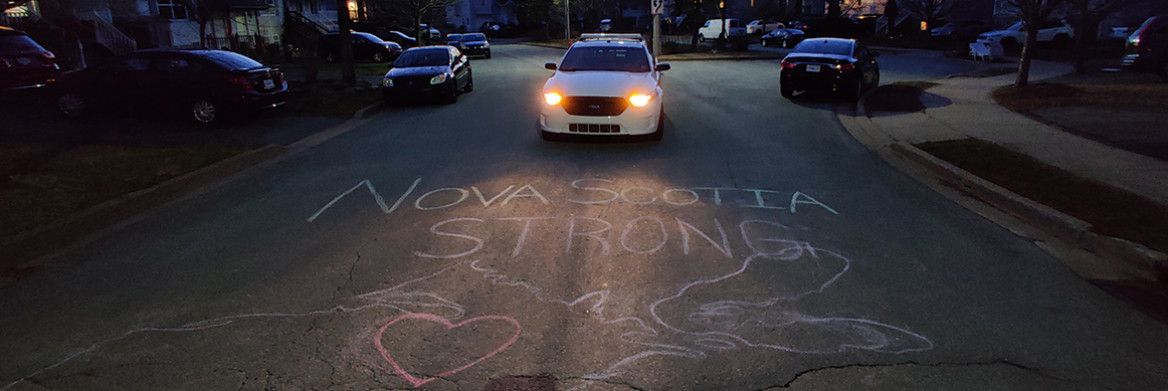Related links
Investigating the April tragedy in Nova Scotia that took 22 lives, including that of RCMP Cst. Heidi Stevenson, is no small task. While RCMP officers and investigative specialists study the multiple crime scenes associated with Operation H-Strong, regular police work must continue.
To support the Nova Scotia RCMP, 60 RCMP officers from Quebec and Ontario were deployed to the province helping to ensure front-line services could continue throughout the investigation.
The first group of 30 police officers arrived in Halifax two days after the Nova Scotia RCMP requested support. The second group of 30 officers arrived four days later.
During the early stages of Operation H-Strong, RCMP employees from Prince Edward Island, Newfoundland and Labrador and New Brunswick supported the investigation. As it unfolded, it was clear Nova Scotia needed additional resources.
"It was essential to maintain excellent front-line service while undertaking an investigation unprecedented in Canadian history,
" says Insp. Don Moser, an assistant support services officer with the Nova Scotia RCMP. "Members from multiple divisions stepped up to help support detachment operations so we could continue providing the quality service our communities expect,
" he adds.
A central mobilization plan
While deploying RCMP employees from one province to another during events like wildfires and floods is common, this mobilization was organized with the help of the National Mobilization Team set up to address national resource issues during the COVID-19 pandemic.
The team ensures RCMP officers with the necessary skills can be effectively deployed to where they're needed without a major disruption in other RCMP divisions.
"Throughout the COVID-19 pandemic we wanted to have a national perspective on mobilization. So, when or if a situation arises where divisions are struggling with resource issues, we're able to strategically move resources to where they're most needed,
" says Insp. Richard Rollings with the National Mobilization Team.
The team includes employees who have worked on planned mobilizations for large events such as the G7 and Vancouver Olympic Games and have experience addressing logistical hurdles involving transportation, lodging and equipment needs.
While the COVID-19 pandemic added logistical challenges, the team secured a charter flight for the police officers and had them in Nova Scotia as soon as possible.
RCMP Air Services helped transport essential supplies such as hard body armour and personal protective equipment that couldn't make it on the charter flight.
"Identifying members to deploy was an easy task as many were eager to support their colleagues,
" says Miguel Genier, a program support manager with the RCMP, who helped organize the mobilization. "The organization has a large pool of resources that can be quickly leveraged and seamlessly integrated in any operation, allowing us to efficiently respond to regional or national events.
"
Here to help
For the officers deployed to Nova Scotia, leaving home at a moment's notice to support colleagues across the country is part of the job.
RCMP officers all have similar training and can work across the country with few hurdles.
"We were all at Depot at one time,
" says Cpl. Karla George, referring to the RCMP's training academy in Regina.
George usually works in International Peace Operations at RCMP National Headquarters in Ottawa and spent two weeks working in the Enfield detachment in Nova Scotia.
Officers received a briefing once they landed in Nova Scotia reviewing necessary and helpful information regarding general duty work in the province. A dedicated liaison officer worked with the officers to answer any questions about policing in Nova Scotia.
"The community has welcomed police officers they've never seen before with open arms,
" says Cst. Paul Bannerman, who usually works in training with RCMP National Division in Ottawa and was mobilized to the Enfield detachment. "I drive down streets and people wave at me every time.
"
Regardless of where an employee is posted or their role, helping communities and the public stays top of mind for all RCMP employees.
"I've been proud to be able to come out here to help and work with my colleagues, but most importantly to work in the communities of Nova Scotia,
" says Bannerman.
